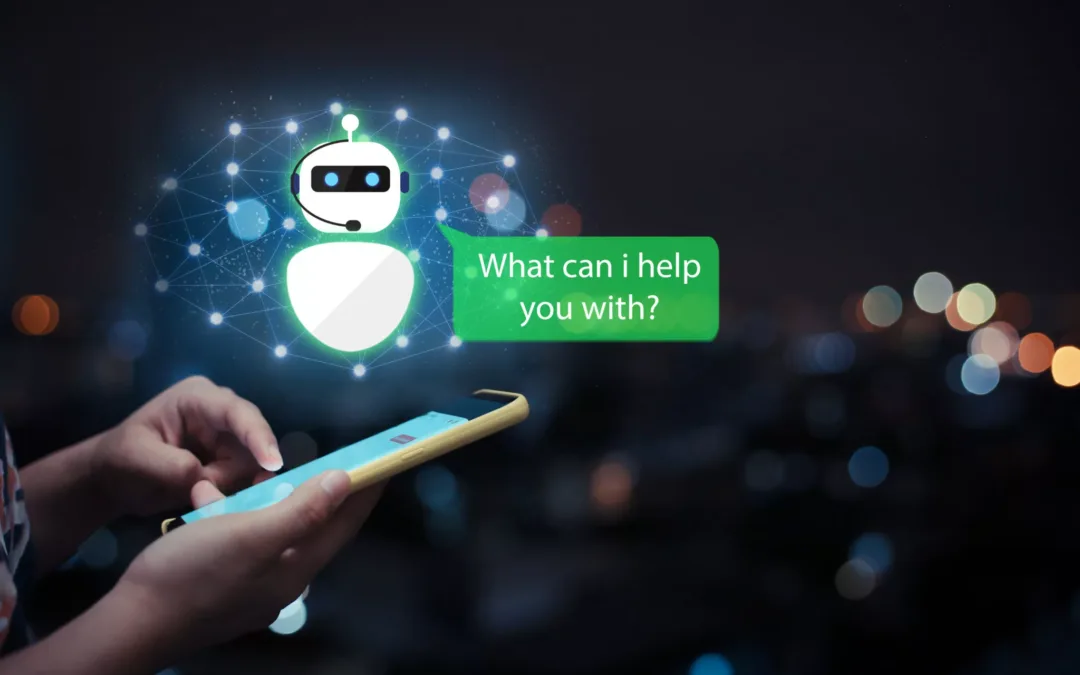The use of AI in marketing is disrupting networking platforms even more so than last year.
Top trends in 2020:
1 – This year, companies of all shapes and sizes (including mine) are beginning to explore how they can use artificial intelligence (AI) to their advantage.
2 – The main points, according to Bernard Marr, are to improve their customer’s experience and streamline their business operations.
3 – Social media plays a tremendous role in marketing strategies these days, with various platforms together accounting for 2.77 billion users and growing.
4 – AI will cause significant disruption to this sector when it gets going, which we believe it’s set to do in the next 12 months and into the future.
Here are our top AI advancements, ranked in order of how fabulous we think they are:
Provide Clues for Content Creation

There’s so much hype at the moment around the “deliver the right message at the right time using the right channels” concept, marketers could be forgiven for feeling overwhelmed by the expectations facing them.
How exactly do you know what those 20,000 followers on your company’s social media profiles like and want?
And how can you possibly determine the right time for posting your updates?
AI-assisted content creation is the solution.
The AI tools can be configured to study the type of content brands in your industry post (including your competitors), and how and when users engage with it.
The tool can align this with customer feedback, data about purchases, and information from other sources to make a scientific calculation on what influences prospective buyers.
This isn’t pie in the sky, either. Companies such as the New York Times, Reuters, and USA Today are already using AI to guide their content production.
Spotify assembles a weekly playlist for users to discover new music based on their tastes.
Netflix and Amazon Prime show you films they think you might like, based on your viewing habits.
Why shouldn’t it work for a company selling software as a service or marketing automation, too?
Deliver Ultimate Audience Targeting
Sending the right online messaging only has value if it reaches the right people, and audience targeting has been the holy grail of marketing campaigns since the beginning of time.
Now, since all the audience activities are recorded and stored online, it’s possible for marketers to use AI to generate meaningful insights.
Some of the data-driven nuggets of knowledge you can count on AI to deliver are:
Which social media platforms various audience segments use, and how much time they spend online.
What they typically use the different platforms for, and the forms of content they consume.
How users behave online when they’re presented with a particular type of content, and which products and brands get the most views.
What users’ typical buying patterns look like, broken down by industry and product/service.
Having access to this information means marketers can expand their campaign beyond linear segmentation by including the data learned from former audience buying behavior and customer patterns.
They’ll be able to target “look-alike” groups who share similar characteristics with existing successful audience segments.
This will give them the power to develop hyper-personalized messaging to use on social posts and engagement responses.
Optimize Adspend and ROI
Every company wants to optimize its advertising spend, but that’s really difficult if you don’t know what’s working and what isn’t.
The days of dealing in conjecture are over, thankfully, and with AI we no longer have to either take an educated guess or spend hours and days gathering numbers to develop a conclusion.
AI can generate real-time, actionable data to show where their marketing spend is performing best.
Marketers will be able to make short shrift of the tweaks needed to maintain focus on the keywords that work, without needing to use human resources to do it.
AI will help companies to identify the updates, topics, and keywords that will make social media content more relevant to their audiences, which has to lead to more conversions and better ROI.
Maintain a Constant Presence
In the global world we live and work in now, time zones mean little to business activities.
That translates to having to be “always-on” in terms of your social media and website responses, among others.
AI-based chatbots can manage the company’s online presence, respond to customer queries around the clock, and answer open questions.
The bots use Natural Learning Processing (NLP) and Machine Learning (ML) to find the right, tailored response based on keywords.
In many cases, these intelligent, conversational chatbots can handle issues as they arise, instead of keeping customers waiting until a person is available.

Many of these things are already happening. Artificial intelligence is everywhere, even if most people don’t realize it.
LinkedIn uses AI to match candidates to jobs based on hiring patterns, keywords in work experience, and similarities in job descriptions.
This allows it to deliver better results for both employers and job seekers.
Last year, Facebook acquired the now-defunct Bloomsbury AI to help it fight the fake news epidemic and identify inappropriate content.
Previously, it had purchased an AI-based program aimed at integrating with Messenger to answer users’ questions about real-world products and services.
Twitter also uses AI to choose the most relevant tweets to show users, based on their other activities.
Tools to Consider
There are a number of new up-and-coming AI tools you can consider, depending on your company’s needs.
Some of our picks are:
Crayon. This tool uses machine learning and shows you exactly what your competitors are up to.
Acrolinx. A great tool that helps brands assess the quality of their content by checking tone of voice, style, and language. It also helps with consistency.
Concured. An AI-powered tool used to discover which topics are generating the highest level of engagement and guide the content strategy of a company.
Conversica. This is a market intelligence platform that uses machine learning to deliver strategic insights into competitors’ activities using company websites to track what they are doing.
LivePerson. An aptly-named conversational platform whose bots mimic a live person to provide answers to common customer questions asked in messaging channels.
rasa.io. A smart newsletter tool that auto-generates content for your newsletter and promises to increase open rates, as well as build trust with your readers.
Pattern89. A tool used for paid digital media, Patter89 is a marketing AI tool used to maximize ROI and reduce cost.
Persado. This Message Machine tool powered by AI and data science leverages over one million words and language to improve customer engagement results.
Phrasee. How about your own personal AI-powered copywriter that writes content that resonates with your audience? Drive more clicks and conversations by giving this tool a test drive.
Atomic Reach. A social media marketing automation tool that will automate your social entirely – all you need to do is approve the content. Learn how to easily optimize your content.
The Last Word
The use of AI in social media is likely to be continuously refined, but it will take a while before we can completely replace the human connection.
Until AI can forge the same bond between brands and customers that people can, the tools will be just that—tools.
They may be useful, but it’s still going to be up to humans to reach prospects organically and create connections through personal interaction.
Co-authored by Tracey Stepanchuk and Audrey DeSisto
Tracey is a professional freelance writer for B2B companies in the tech space. As a former journalist and editor of an international news website, View her portfolios here.
Sign up for the latest Martech news delivered straight to your inbox!
Are you keeping up with the AI marketing shift? If not, you're leaving opportunity and revenue on the table.
Smarter Marketing Starts Here
Subscribe to receive actionable AI marketing tips, emerging trends, and tools that help you stay ahead—delivered straight to your inbox. We believe in protecting your data and privacy.
[newsletter_form]

